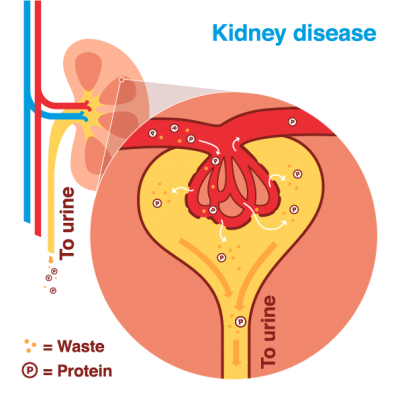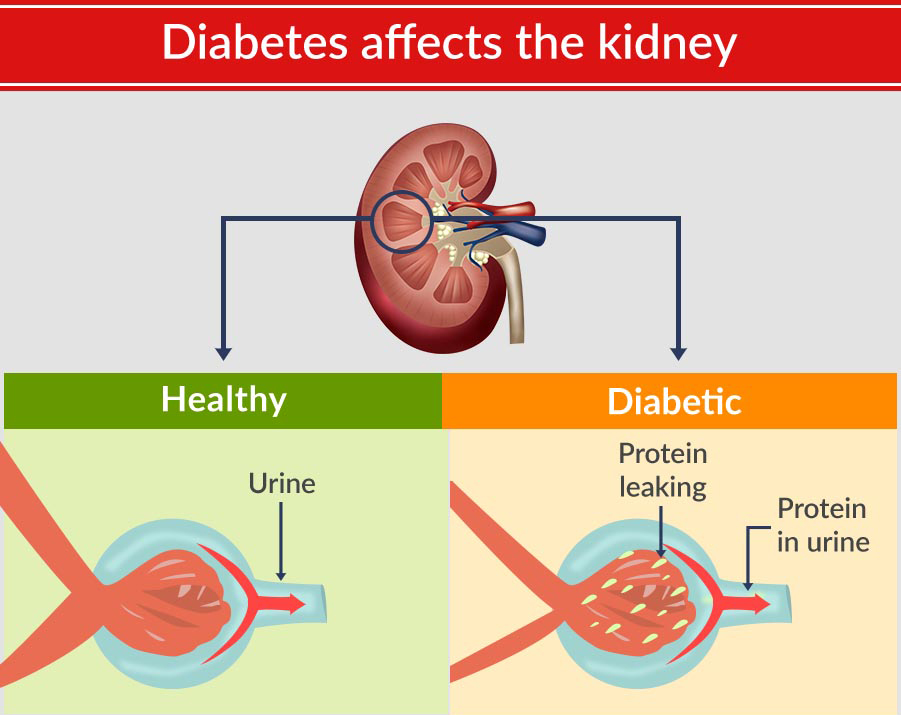Diabetes Kidney Failure Treatment
Diabetes Kidney Failure Treatment in Andheri
What is Diabetic kidney Disease?
The issue occurring within the kidney because of diabetes is considered diabetic kidney disease. It’s also referred to as diabetic nephropathy.
What are the functions of the kidney?
The kidney is one such organ, which excretes waste generated within the body. There are two kidneys within the body. Inside them are several tiny blood vessels that act as filters. Their job is to get rid of waste products from the blood.

How Does Diabetes Cause Kidney Disease?
As mentioned above, the small blood vessels (capillaries) within the kidney acts as a filter. As blood flows through the blood vessels, small molecules like waste products squeeze through the holes. These waste products become a part of the urine. Like protein and red blood cells, essential substances are too big to go through the holes within the filter and stay within the blood. High levels of blood sugar seen in diabetic patients create troubles in the filtering capacity of the kidney.
To begin with, they create the kidneys to filter more blood. After a few years, the kidneys start to sink to the heavy workload. They begin to leak, and essential protein is lost in the urine. Initially, the quantity of protein excreted is a small amount, but soon after, it increases.
When the kidney starts losing protein, several treatments may keep kidney disease from getting worse. But if kidney disease is diagnosed at the stage where larger amounts of protein are excreted within the urine, the end-stage renal disease or ESRD usually develops.
In time, the strain of overwork causes the kidneys to lose their filtering ability. Waste products then start to build up in the blood. Finally, the kidneys fail. This failure, ESRD, is extremely serious. An individual with ESRD must have a kidney transplant or possess the blood filtered by a machine (dialysis).

Who Gets Kidney Disease?
Not everyone with diabetes develops kidney disease. Factors that may influence kidney disease development include genetics, blood sugar control, and vital sign. The more an individual keeps diabetes and vital sign in check, the lower the prospect of getting kidney disease.
What are the Symptoms?
Kidney disease produces no symptoms until the majority of functions are gone. Also, the symptoms of kidney disease aren’t specific. The primary symptom of kidney disease is usually water retention. Other symptoms of kidney disease include loss of sleep, poor appetite, indigestion, weakness, and difficulty concentrating.
How can I prevent it?
Diabetic kidney disease can often be prevented by keeping blood sugar, cholesterol and vital sign in check. It’s paramount to check with your doctor regularly. The doctor can check vital signs, urine (for protein), blood (for waste products), and organs for other complications of diabetes. Four ways to lower your vital signs are losing weight, eating less salt, avoiding alcohol and tobacco, and regular exercise.
For the treatments of kidney disease, you must consult an Diabetologist. Depending upon the severity of the disease, treatment may vary. Generally, treatment includes water restriction, protein restriction , reducing medicines, erythropoietin, bicarbonate, calcium supplementation. Ultimately to prevent patient from going on dialysis or renal transplantation early intervention from your doctor is important.
